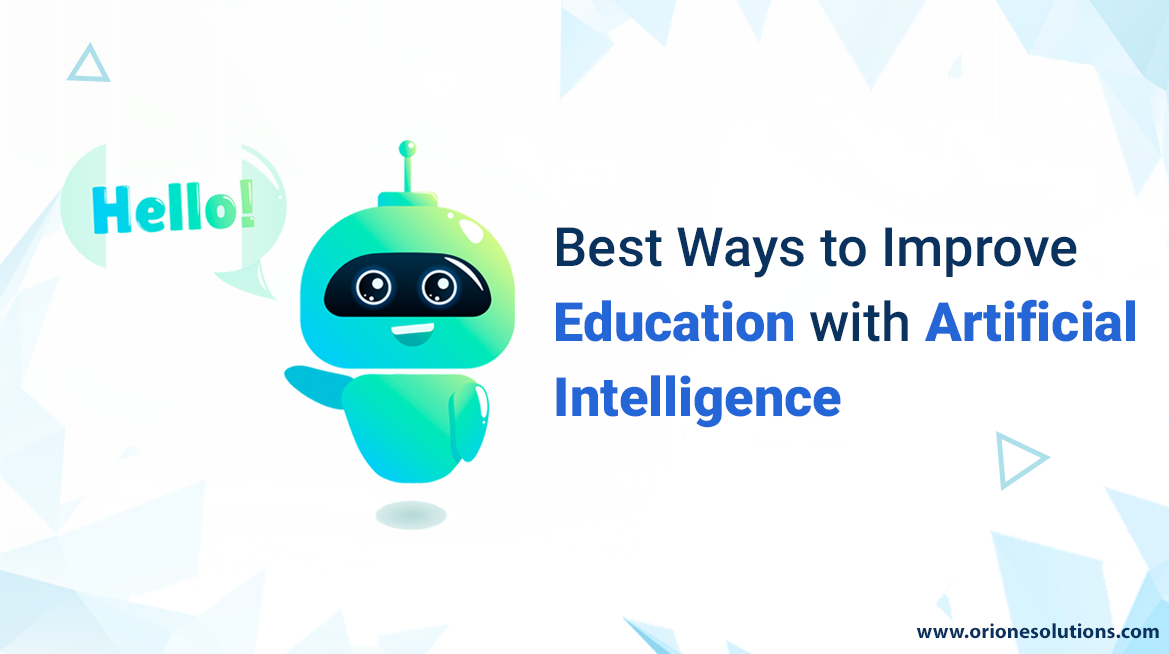How we can improve education with AI? Are you also curious to know the answer of this latest question about AI?
Nowadays, Artificial Intelligence has emerged as a powerful technology showcasing its impact across various sectors like healthcare, banking, and education sector is no exception. From simplifying administrative tasks to transforming legacy learning methods to virtual classrooms, AI has made education more engaging than before.
- A report by GlobeNewswire depicts that Artificial Intelligence in the education sector will reach $80 billion by 2030.
- According to research by Research and Markets, implementing AI in the global education market may reach $5.57 billion in 2024.
All these numbers showcase the huge potential and opportunities AI brings for the education sector and how education service providers can benefit from building innovative solutions or services that connect to various students, tutors, or learners.
Effective Ways to Improve Education With AI
Artificial Intelligence simplifies various tasks in the education domain, delivering smoother learning experiences. So, below are a few ways to improve education with AI and transform the way education is served and grasped.
Advanced Tutoring Systems
Advanced tutoring systems powered by Artificial Intelligence help deliver personalized learning experiences like one-on-one tutoring. These systems leverage NLP (Natural Language Processing) and ML (Machine Learning) algorithms, assisting in understanding the student’s queries and delivering assistance accordingly.
Also, tutors can assess the learning pace of every student and provide instant feedback, resources, or support for better learning.
Task Automation
AI tools have become the savior in the education sector, eliminating the need for executing most of the tasks manually.
Though AI can not overrule the significance of teachers, it can reduce their burden in this fast-paced world. From chores like report maintenance to creating notes and presentations, Artificial Intelligence can save them sufficient time.
Other time-consuming tasks it can handle include:- Planning and scheduling meetings with parents
- Creating feedback reports
- Automating paperwork like student enrollment, entrance forms, and more
AI in Grading Systems
Grading software integrated with AI techniques like data analysis or machine learning can create efficient and precise grading systems. It helps teachers assess essential metrics from previous quizzes, exams, or assignments, and deliver feedback accordingly.
This minimizes the time spent on grading, enabling teachers to focus more on value-based interactions with the students and improve overall efficiency.
Deploy AI-Based Assistants
Chatbots and virtual assistants are a true example of how using Artificial Intelligence in education can offer personalized learning experiences, feedback, and flexible support to teachers and students alike.
AI-based chatbots help teachers to offer personalized analysis and guidance beyond the regular classes. These chatbots can be utilized as an alternative for email conversations between parents and teachers, ensuring transparency and better communication.
Promote Virtual Learning
Nowadays, with overcrowded classrooms with hundreds of students in schools and colleges, monitoring students and building a learning atmosphere has become a challenge. Here, AI has a great capability of delivering personalized learning to students globally.
With Artificial Intelligence tools and systems, creating virtual classrooms that are available for students globally and promote an active learning environment has become easier. Furthermore, tutors or teachers who can not attend schools for varying reasons can provide virtual sessions, ensuring the continuous teaching and learning process.
Artificial Intelligence in Student Assessment
Traditional evaluation methods involve standard tests that are less effective in understanding the student’s strengths and weaknesses. Here, AI-based assessment tests can help teachers to deliver more accurate feedback. It assesses students’ participation, performance, and learning behavior, and generates a complete report of student’s progress and areas of improvement.
Also, teachers can integrate AI in formative assessments to monitor student’s progress and identify the need to modify either teaching or learning materials. In addition, AI tools can provide quick feedback to the students, helping them make necessary improvements and enhance learning.
Learn Data & Analytics
AI-driven reporting and analytics help tutors and teachers stay updated on each student’s activities. AI tools can be leveraged to keep up with trends and follow best practices for positive outcomes using data like participation, attendance, etc.
Also, teachers can take action accordingly to guide students where they are lacking, ensuring improved learning.
Create Smart Content
Smart content backed by AI includes a wide range of resources such as video tutorials, micro-learning content, digital textbooks, and more, facilitating personalized learning environments. Also, schools and other educational institutions can help build web-based lessons that better resonate with the teaching goals and strategies.
Furthermore, AI tools allow content delivery optimization to align with different learning styles and preferences and adjust the curriculum according to student’s strengths and weaknesses and their performance. As a result, teachers can focus more on enhancing their teaching efficiency and study materials.
Create Custom eLearning Solutions
Artificial Intelligence can be leveraged to develop custom learning solutions that further aid teachers or lecturers in bridging the learning gap between the study resources and their teaching sessions. Solutions like personalized courses powered by AI can help analyze the areas of improvement and ensure better education is delivered.
For example, the Duolingo app offers customized lessons, interactive quizzes, and vocab exercises to help learners improve their language skills. The app also uses Artificial Intelligence for speech recognition, pronunciation guidance, and producing engaging content, making language learning more efficient.
AI for Special Learning Needs
AI-powered technologies can be leveraged to meet the learning needs of students with different impairments. You might have heard of speech recognition software. These assist students with speech difficulties to easily interact and participate in classroom discussions. The software captures their words with great accuracy and converts them into speech, enabling them to express their ideas efficiently and feel confident.
Likewise, real-time transcription services backed by Artificial Intelligence can be helpful for students with hearing difficulties. Such software transcribes the classroom speech into written text for their active engagement in learning.
The students can participate in the sessions, group discussions, and so on, further improving their understanding capability.
Final Thoughts
With the recent introductions of multiple AI tools, digital transformation in education is a necessity, requiring the implementation of these discussed ways. These will help schools, institutions, online platforms, or other educational service providers stay updated with AI trends and enhance learners’ experience.
And what can be better than partnering with Orion eSolutions to hire AI developers? With our industry expertise in delivering AI development services and in-depth knowledge, we can build software solutions loaded with trending features and functionalities.
Thus, ensuring easy manageability and maximum learning, and meeting all your software development needs.
Frequently Asked Questions
1. Can AI replace human teachers?
Answer: Though AI has proven to be a valuable tool for learners and teachers alike in education, remember it can not replace human teaching. The intelligence and conversational skills that human teachers possess offer far more flexibility and enhance creativity, and trust among learners as compared to AI-based tools or services.
2. What are the pros and cons of AI in education?
Answer: The benefits of AI in education include filling in the skill gap, providing targeted feedback, automating administrative tasks, and more.
On the other hand, a few cons of AI in education are potential job loss, lack of critical thinking, no humanly conversations, and costly implementation.
3. How can AI be used to enhance student engagement in the classroom?
Answer: AI systems assist in analyzing students’ strengths, weaknesses, and performance and adjust the curriculum for improved progress. As a result, it boosts motivation, enhances student engagement in the class, and heightens their learning capability.
4. In what ways can teachers improve education with AI?
Answer: The teachers can utilize AI technology to ensure an ideal learning environment, adopt teaching techniques according to students’ needs, boost communication, and provide quick feedback with details of student’s strengths and weaknesses.









